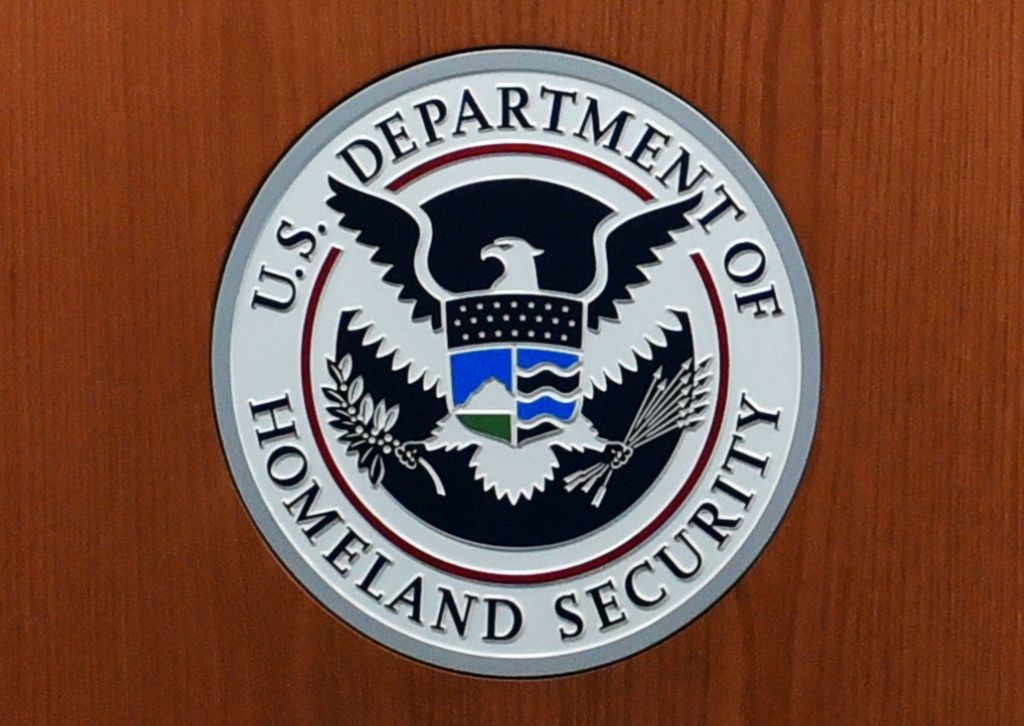How the Trump administration used 'deceptively mundane' rule changes to curb immigration


A free daily email with the biggest news stories of the day – and the best features from TheWeek.com
You are now subscribed
Your newsletter sign-up was successful
Banning travel from seven Muslim-majority countries and rescinding DACA were well-known, highly public actions carried out by former President Donald Trump as he sought to curb immigration during his lone term in the White House, but his administration also implemented "an extensive, bureaucratic" strategy to "transform immigration through rule changes, adjustments to asylum officers' guidelines, modifications to enforcement norms, and other measures," The New Yorker reports.
Many of these "deceptively mundane" rule changes have been tracked by immigrants' rights groups, and they could be as simple as "changing one single word on a form," said Lucas Guttentag, a law professor at Yale and Stanford who is considered "one of the most fastidious chroniclers" of the low-key alterations over the last four years. For example, the ombudsman for U.S. Citizenship and Immigration Services discovered the agency began rejecting some paperwork if the blank spaces weren't filled out with "N/A," the shorthand for "non-applicable." And the USCIS also redesigned its civics exam so that the answer for the question "Who does a U.S. senator represent?" from "All people of the state" to "Citizens of their state."
Per The New Yorker, Guttentag's tracking project logged 1,058 changes to the immigration system by the end of Trump's presidency, which helped cut the number of legal immigrants to the U.S. nearly in half. Read more at The New Yorker.
The Week
Escape your echo chamber. Get the facts behind the news, plus analysis from multiple perspectives.

Sign up for The Week's Free Newsletters
From our morning news briefing to a weekly Good News Newsletter, get the best of The Week delivered directly to your inbox.
From our morning news briefing to a weekly Good News Newsletter, get the best of The Week delivered directly to your inbox.
A free daily email with the biggest news stories of the day – and the best features from TheWeek.com
Tim is a staff writer at The Week and has contributed to Bedford and Bowery and The New York Transatlantic. He is a graduate of Occidental College and NYU's journalism school. Tim enjoys writing about baseball, Europe, and extinct megafauna. He lives in New York City.
-
 How the FCC’s ‘equal time’ rule works
How the FCC’s ‘equal time’ rule worksIn the Spotlight The law is at the heart of the Colbert-CBS conflict
-
 What is the endgame in the DHS shutdown?
What is the endgame in the DHS shutdown?Today’s Big Question Democrats want to rein in ICE’s immigration crackdown
-
 ‘Poor time management isn’t just an inconvenience’
‘Poor time management isn’t just an inconvenience’Instant Opinion Opinion, comment and editorials of the day
-
 Rubio boosts Orbán ahead of Hungary election
Rubio boosts Orbán ahead of Hungary electionSpeed Read Far-right nationalist Prime Minister Viktor Orbán is facing a tough re-election fight after many years in power
-
 Switzerland could vote to cap its population
Switzerland could vote to cap its populationUnder the Radar Swiss People’s Party proposes referendum on radical anti-immigration measure to limit residents to 10 million
-
 Key Bangladesh election returns old guard to power
Key Bangladesh election returns old guard to powerSpeed Read The Bangladesh Nationalist Party claimed a decisive victory
-
 Epstein files topple law CEO, roil UK government
Epstein files topple law CEO, roil UK governmentSpeed Read Peter Mandelson, Britain’s former ambassador to the US, is caught up in the scandal
-
 Iran and US prepare to meet after skirmishes
Iran and US prepare to meet after skirmishesSpeed Read The incident comes amid heightened tensions in the Middle East
-
 EU and India clinch trade pact amid US tariff war
EU and India clinch trade pact amid US tariff warSpeed Read The agreement will slash tariffs on most goods over the next decade
-
 Israel retrieves final hostage’s body from Gaza
Israel retrieves final hostage’s body from GazaSpeed Read The 24-year-old police officer was killed during the initial Hamas attack
-
 China’s Xi targets top general in growing purge
China’s Xi targets top general in growing purgeSpeed Read Zhang Youxia is being investigated over ‘grave violations’ of the law
